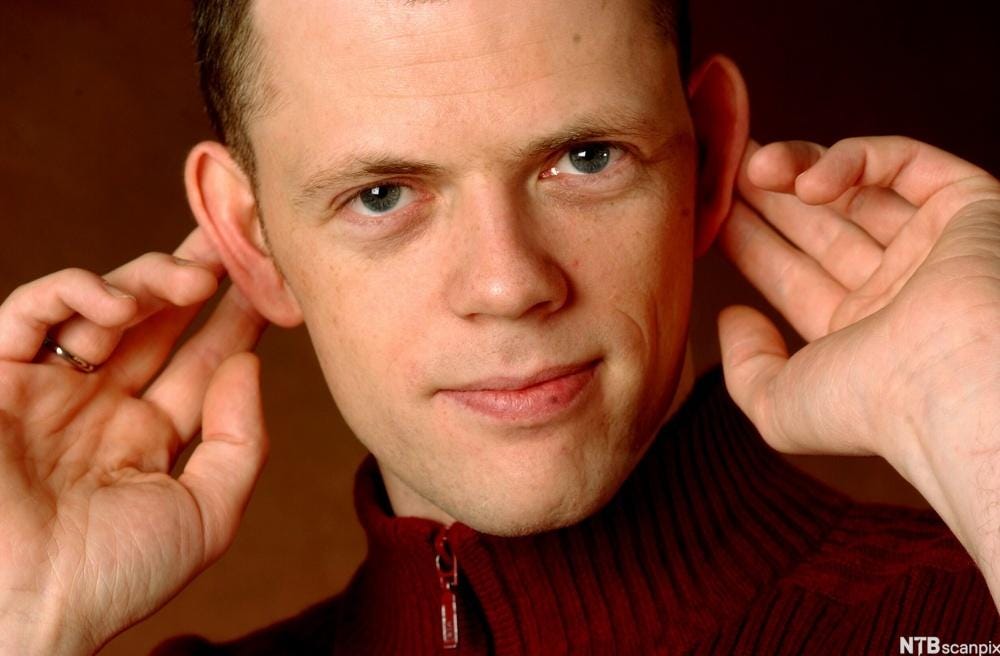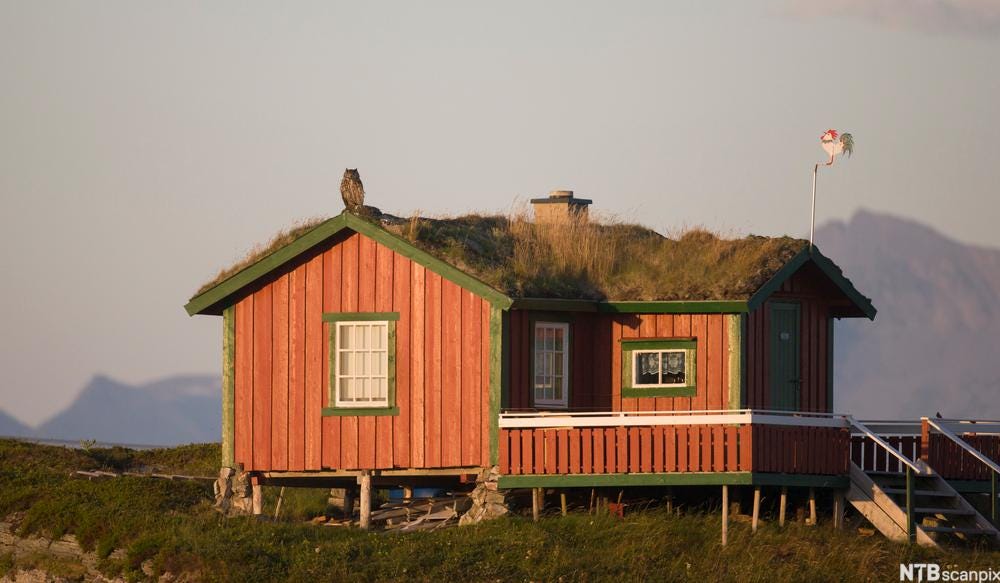Peregrinism - The (declining) religion of Norway
CC BY-NC-SA - Heiko Junge
I have long thought that the Norwegian relationship to nature was borderline religious, but I didn't want to be the one to point it out. Luckily, a Norwegian comedian, Are Kalvø, recently wrote a book and had a show where he's discussing this topic at length. He agrees with me 100%. The Norwegian obsession with hiking in the mountains is nothing short of religious. It's not a religion tied to any deity, nor does it have a holy book, but its followers are as devout as any.
As a native Norwegian, I've observed this phenomenon firsthand. My parents, who are orthodox followers of this religion, have always been avid hikers. As a student, when I couldn't afford the necessary gear for these mountain treks, I felt like a dissident and an outcast from this religion. The disappointment in my parents' eyes was like the disillusionment of Catholic parents discovering their child's atheism.
A pilgrimage to nowhere
Are Kalvø humorously highlights the ludicrous orthodoxy of this hiking religion. From people posting countless pictures of their hikes on social media to the unexplainable, indescribable sensation that people claim to experience in nature. Nature, in its grandeur and majesty (especially Norwegian nature), has always invoked a sense of awe and reverence. It's something bigger than oneself, and in that sense, it's religious.
But the pilgrimage to nowhere is a journey without a destination. It's a relentless pursuit of the next peak, the next valley, the next breathtaking vista. It's an endless cycle of packing, hiking, and unpacking, only to start all over again. It's a ritual that's as demanding as it is rewarding.
CC BY-NC-SA - Willy Haraldsen
In his book, Kalvø suggests that this relentless pursuit of nature is a form of escapism. It's a way for Norwegians to disconnect from the pressures of modern life and reconnect with their primal roots. But at what cost? As Kalvø points out, this obsession with nature often comes at the expense of personal relationships and social obligations. The pressure to conform, to join the pilgrimage to nowhere, is overwhelming.
Evangelical hikers
He mentions that many people on social media post numerous pictures with multiple hashtags, almost filling up the internet. They proudly proclaim their newfound love for nature and hiking without any reservations or nuances. It's all about showing off and declaring that this is the best thing ever, the truth and the way.
There are even expectations for politicians to make important decisions alone on a mountain, like Jonas Gahr Støre deciding to become the leader of Norway's largest political party.
Are Kalvø humorously tells of how similar they are to Christian missionaries:
And there is also something newly converted about those of my lost friends I have spoken to about this. Among other things, they have the same missionary zeal as some newly converted.
Okay, let's be a little nice. Let's call it missionary desire.
No, on second thought. Let's call it missionary zeal.
They want to convince the rest of us. And they do it in two ways. Either by telling us that in nature you can experience something you can't experience anywhere else. Or –and this is much stranger – by telling us that in nature you can experience exactly the same as everywhere else. And this is where the mountain people start to resemble a bit too much those who went to Christian summer camp in their youth and tried to convince everyone that things were just as wild there as in Ibiza. The newly converted mountain people tell you, like teenagers who have discovered something secret, about everything that goes on in these cabins in the mountains.
Although I am an apostate of the hiking religion who like to make fun of it, I obviously recognize the good parts of it as well. Just the exercise itself make many of the trips worth it. The experiences and religious communities around it are also good bonuses. But I wonder how long it will last into the modern day.
Can it compete with digitalization?
Will the younger generation, raised on smartphones and social media, continue to evangelize it? They're more likely to explore a virtual world than a physical one. And when they do venture into nature, it's often through the lens of a smartphone, capturing moments for social media rather than for their own personal enjoyment.
The cathedrals of the outdoors might wake up into an existential crisis in the near future when it tries to compete with the increasingly more satirized content in the digital space.
CC BY-NC-SA - Kai Jensen
The younger generation are already living in a world of instant gratification, where everything is just a click away. The idea of spending hours, or even days, hiking in the wilderness for the sake of a beautiful view or a moment of solitude might seem alien to them. They might ask, "why hike for hours when you can experience the same view in a high-definition video on YouTube"?
On the other hand, the theme of "going back to the past" never gets old, and will probably continue long into the future, maybe as an alternative option to digitalization that's never really realistic in the end. I for one, hope that the tradition of going to a cabin in the mountain without any electricity can continue. It's nice to take breaks from modernity every now and then. I just dislike the hiking religion when it demands to consume every single moment of my life.
Perhaps it's not about rejecting the digital world, but about finding a balance between the digital and the natural. Only time will tell.
I'll end the blog post with a poem from the famous Norwegian playwright Henrik Ibsen, who will get the last word in favor of the religion:
Now I am resolute, I feel the command
that bids me to wander in the heights!
My lowland life I have lived out;
up here on the open mountain is freedom and God,
down there the others are floundering.
- Henrik Ibsen, “På Viddene”






